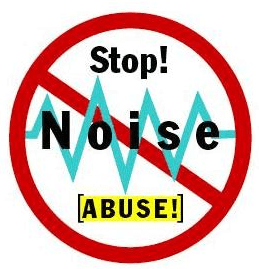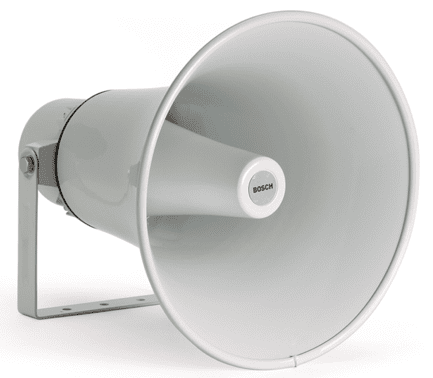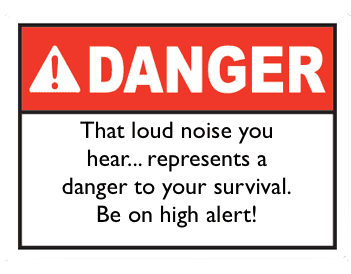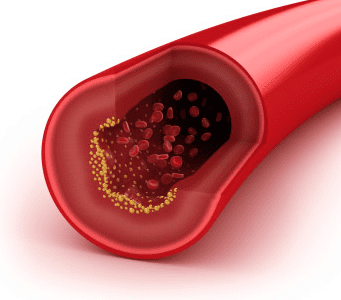
Noise can erode situational awareness in many ways. Loud noises, soft noises, lots of noise, odd noises, familiar noises, annoying noises… all noise can present challenges.
In this article, I want to explore some of the challenges first responders face in a noisy environment and I’d like to share my personal example of how noise impacted my situational awareness.
Station Alerting
 When I was a young EMT-paramedic, the dispatching was done right from the station. The telephone had a very loud horn (sometimes known as a Klaxon). If you want to know what it sounds like, CLICK HERE . Since the video does not do the justice of the massive blast this horn emitted, you can get the full effect but turning your speaker volume all the way up and sticking your ear up against it. (WARNING: That was a joke. Don’t really do that. I don’t want sued when you suffer hearing loss).
When I was a young EMT-paramedic, the dispatching was done right from the station. The telephone had a very loud horn (sometimes known as a Klaxon). If you want to know what it sounds like, CLICK HERE . Since the video does not do the justice of the massive blast this horn emitted, you can get the full effect but turning your speaker volume all the way up and sticking your ear up against it. (WARNING: That was a joke. Don’t really do that. I don’t want sued when you suffer hearing loss).
The station was a modest sized converted two-story residential dwelling and the horn was placed strategically in the stairwell so it could be heard both upstairs (when we were in bed sleeping) and downstairs (when we were in the lounge chairs sleeping). When the phone rang, the horn would blast for the full length of the telephone ring. It would startle me so bad that I would bolt up and RUN to answer the phone, not wanting it to ring even a second time. My heart would be pounding and I could hardly recall my required line “EMS, what is your emergency?”
Then, the unthinkable happened. A crew member, actually several crew members, slept through the ringing of the phone and the blasting of the Klaxon one night, causing a big stir. Our director didn’t like it when we missed answering the emergency phone. I guess she had good reason to be upset. But what she did was almost inhumane. She had the Klaxon moved into the bedroom. Remember, this was a residential bedroom (about 10×12). The sound of the Klaxon would literally vault me out of bed. I would feel my heart beating in my eardrums. I would be out of breath and my skin would become clammy.
At the time, I thought little of that reaction other than how fearful I was of the phone ringing in the middle of the night. I would go to bed with my head wrapped in pillows. I always tried to get the bed next to the phone because I knew I would never let it ring two times. I do recall there were many times that I was barely coherent enough to understand the caller and my hand would be trembling as I would try to write down the address. Sometimes we had to go to the playback recorder downstairs to get the right address because what I wrote down was not readable. I was suffering from noise-induced stress.
On High Alert
 There are many things that can cause stress in our lives. Some if it is short-term, or acute stress. Other stressors are long term, or chronic stress. Some stress in our lives is good. It compels us into action… action that can save our lives. Some of the stress we encounter is bad. It can inhibit action… and create consequences.
There are many things that can cause stress in our lives. Some if it is short-term, or acute stress. Other stressors are long term, or chronic stress. Some stress in our lives is good. It compels us into action… action that can save our lives. Some of the stress we encounter is bad. It can inhibit action… and create consequences.
Most often, noise triggers an acute form of stress and there is a good explanation why it does. The genetic coding in your DNA (that’s “deoxyribonucleic acid” … if you want to impress your friends) contains an exquisitely tuned alerting system to warn you of dangers in your midst. The alerting system looks out for things that represent a threat to your survival. The code is, quite literally, millions of years old and dates back to the early existence of human kind. Back “in the day” (think prehistoric) your cave dwelling ancestors inhabited a planet that was, in a word, harsh.
As they came down from the trees and started to walk upright (that’s “bipedalism”… again if you want to impress your friends) they quickly realized there were lots of ground dwelling creatures that wanted to eat them. Defense mechanisms evolved and thankfully so. Had they not, we would have likely been extinct as a species. One the these mechanisms was an alerting system for danger. In essence, be on the look out for… and be prepared to kill… or run away from… anything that can kill us. Those creatures that could kills us possessed certain qualities. Namely, many of them were loud, brightly colored and moved. When they were trying to kill us, the movement was in our direction (aka, proximal movement). So we learned to be on the lookout for creatures that possessed those qualities.
Primal Trip Wires
 Those four qualities: Things that are loud, bright, moving, and moving in our direction became the “primal trip wires” that alert us to danger. They are genetically encoded and influence, to this day, what you pay attention to. They can also trigger a stress reaction. Hence, the Klaxon horn causing a dump of a boatload of chemicals and hormones (think: drugs) that influence and alter my behavior. On the blast of that horn my heart raced and palpitated in my chest, I panted like a dog, my mouth dried and my muscled trembled. My brain would turn to mush as my body leaped into motion when a singular mission – attack that telephone and kill that noise!
Those four qualities: Things that are loud, bright, moving, and moving in our direction became the “primal trip wires” that alert us to danger. They are genetically encoded and influence, to this day, what you pay attention to. They can also trigger a stress reaction. Hence, the Klaxon horn causing a dump of a boatload of chemicals and hormones (think: drugs) that influence and alter my behavior. On the blast of that horn my heart raced and palpitated in my chest, I panted like a dog, my mouth dried and my muscled trembled. My brain would turn to mush as my body leaped into motion when a singular mission – attack that telephone and kill that noise!
Of course, that was 1980 and I had not yet gone to school and learned the lessons that would allow me to fully comprehend the neurological impacts of stress on first responder performance. So I acted, or should I say, reacted in ways that were absolutely primal. That telephone was the neanderthal equivalent of a saber toothed tiger and my mindset was “attack and kill” the telephone and my body was preparing me to do just that.
Over the Long Term
 Our short term stress reaction triggers the release of many chemicals including a dump of Epinepherine from the adrenal glands (which sit on top of your kidneys). Epinepherine prepares you for the well known “Fight or Flight” response. It puts your systems on high alert and gives you lots of energy to complete your kill or run for your life mission. To counter the effects of Epinepherine, and reset your system to normal, your adrenal glands also secrete Cortisol, one of many naturally produced hormonal steroids in your body under the family name of glucocorticoids.
Our short term stress reaction triggers the release of many chemicals including a dump of Epinepherine from the adrenal glands (which sit on top of your kidneys). Epinepherine prepares you for the well known “Fight or Flight” response. It puts your systems on high alert and gives you lots of energy to complete your kill or run for your life mission. To counter the effects of Epinepherine, and reset your system to normal, your adrenal glands also secrete Cortisol, one of many naturally produced hormonal steroids in your body under the family name of glucocorticoids.
When acute stressors become chronic stressors, the build up of stress hormones start to wreak havoc on your blood vessels. One of the ill-effects is Cortisol rubs against the walls of your vessels like sandpaper and leaves small, rough spots. As those rough spots increase over time, plaque starts to build up. When enough plaque forms on the rough spots, it can block the flow of blood through the vessel. If that happens in your heart, you have a heart attack. If that happens in your brain, you have a stroke.
Long Since Forgotten
 It’s been over 30 years since my system has been jolted into a stress reaction from a Klaxon so I don’t have anything more to worry about as far as having to worry about a stroke or heart attack, right? Wrong! The sound of the Klaxon, and my trained reaction to the sound of the Klaxon, is forever burned into my psychological interior. Each time that thing blasted, I immediately experienced a highly emotional reaction. Over and over again. My “acute” stressor (the Klaxon) had been stored into memory and is now, most unfortunately, a “chronic” stressor in my mind.
It’s been over 30 years since my system has been jolted into a stress reaction from a Klaxon so I don’t have anything more to worry about as far as having to worry about a stroke or heart attack, right? Wrong! The sound of the Klaxon, and my trained reaction to the sound of the Klaxon, is forever burned into my psychological interior. Each time that thing blasted, I immediately experienced a highly emotional reaction. Over and over again. My “acute” stressor (the Klaxon) had been stored into memory and is now, most unfortunately, a “chronic” stressor in my mind.
Simply stated, my brain (and body) has learned that when I hear the sound of a Klaxon I am supposed to bolt up and get ready to attack something. My entire system goes on high alert. It’s called an “emotionally competent stimulus” (ECS) and it means that for me, any sound that is similar to a Klaxon is going to get the same result. I experience this ECS every time I hear to buzzer go off at a basketball game. I don’t like that it happens, but I can’t control it either. Others in the audience, who have never been exposed to having a Klaxon go off in a 10×12 room, 3 feet from their ear, at 3:00am are not going to experience the same reaction that I do. For so much as my early days in EMS have been long since forgotten, the stress impact of the Klaxon lives on.
Chief Gasaway’s Advice
 Stress changes you. It changes you biologically, chemically, emotionally and physically. Certain types of stress reactions are good. In fact, without an exquisitely designed stress reaction system, our species would have been extinct long ago. Stress helps compel our actions – actions that can save your life. But stress can also be very harmful and can have a lasting impact on you. This article addresses one stressor that, once understood, can be managed.
Stress changes you. It changes you biologically, chemically, emotionally and physically. Certain types of stress reactions are good. In fact, without an exquisitely designed stress reaction system, our species would have been extinct long ago. Stress helps compel our actions – actions that can save your life. But stress can also be very harmful and can have a lasting impact on you. This article addresses one stressor that, once understood, can be managed.
There are many modern station alerting systems that use a quiet-to-louder alerting design. The “noise” that wakes you up starts softly. The concept is simple. Generate only enough noise to arouse the body into a wakened state while avoiding a dump of stress-induced chemicals and hormones. Heavier sleepers will be awakened as the alerting system increases in volume.
The system can be enhanced by using lighting that also comes on gradually instead of a massive blast of bright light. Recall, bright things are also a primal trip wire for stress. A loud alerting system, coupled with a sudden and unexpected flash of bright lights sets an entire system of bad things into motion and can have a significant impact on your situational awareness.
Is it possible that in the future beds will also be equipped with vibration systems designed to progressively nudge you into awakening? I think it should be explored.
Action Items
 1. Discuss your station’s alerting system and the impact it has on your situational awareness if it jolts you into an immediate and heightened state of arousal.
1. Discuss your station’s alerting system and the impact it has on your situational awareness if it jolts you into an immediate and heightened state of arousal.
2. When evaluating your alerting system, take into consideration both sound and lighting. This includes the quality and volume of the speaker system. If the speakers in the apparatus bay are cheap, but loud and do nothing but echo noise throughout the bay and responders cannot understand what is being said, this adds stress to the situation.
3. The dispatcher’s voice (tone and inflection) can also impact stress. If you cannot understand the dispatcher, it is going to increase stress. If the dispatchers is excitable, it is going to increase stress. If the dispatcher talks too fast (or too slow) it’s going to increase stress. Chances are, a dispatcher who is contributing to the problem of creating stress for responders is completely unaware of it and could benefit from a good teacher and coach.
Share your thoughts and ideas in the “Leave a Reply” box below.
___________________________________________________________
The mission of Situational Awareness Matters is simple: Help first responders see the bad things coming… in time to change the outcome.
Safety begins with SA!
___________________________________________________________
If you want to send me incident pictures, videos or have an idea you’d like me to research and write about, contact me. I really enjoy getting feedback and supportive messages from fellow first responders. It gives me the energy to work harder for you.
Thanks,
Email: Rich@SAMatters.com
Phone: 612-548-4424
www.RichGasaway.com (personal website)
Facebook Fan Page: www.facebook.com/SAMatters
LinkedIn: Rich Gasaway
Twitter: @RichGasaway
YouTube: SAMattersTV
iTunes: SAMatters

